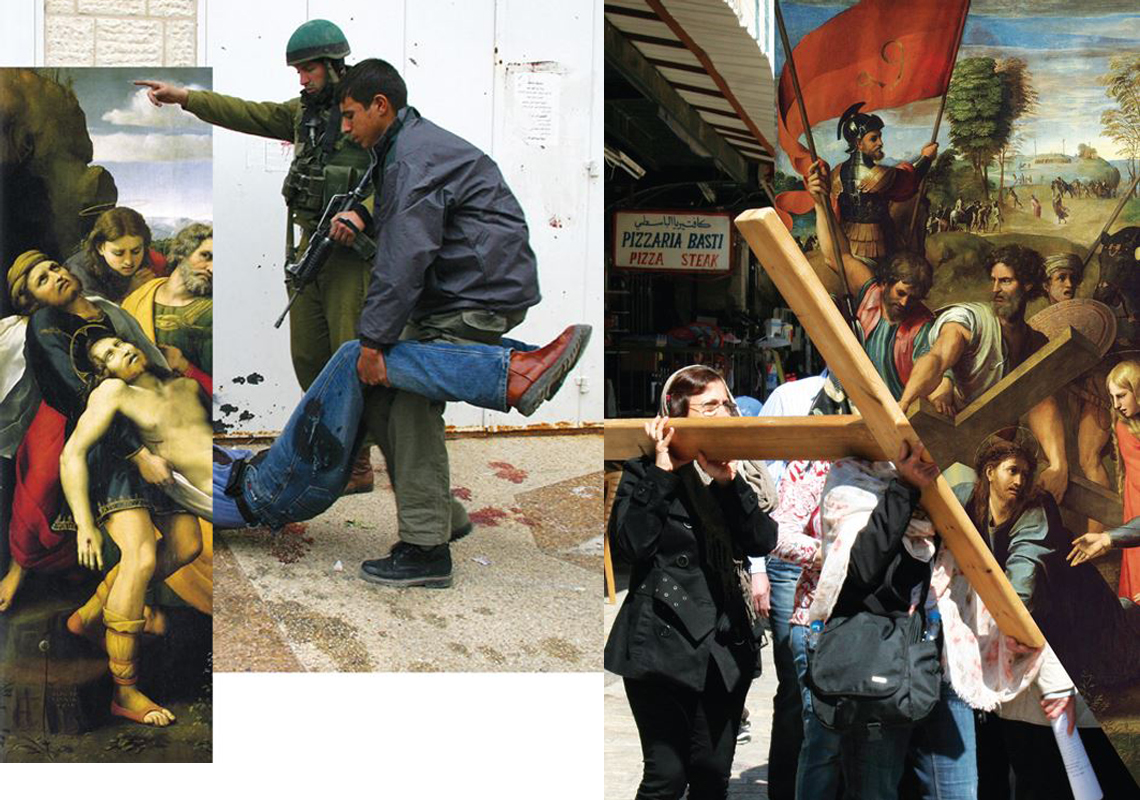March 6: Radical Service
♫ Music:
Friday, March 6
Scripture: Matthew 20:26-28
|t shall not be so among you. But whoever would be great among you must be your servant, and whoever would be first among you must be your slave, even as the Son of Man came not to be served but to serve, and to give his life as a ransom for many.
RADICAL SERVICE
Following Christ is seldom convenient. He challenges our expectations of what is “reasonable”, and compels a reorientation of our priorities: “not to be served, but to serve” (Matt. 20:28). Yet, how do we discern God’s call to radical service?
During the summer of 1939, Dietrich Bonhoeffer struggled to discern God’s call to servanthood. With the church situation in Germany deteriorating and as Hitler marched steadily toward launching an aggressor’s war, professional opportunities were arranged for Bonhoeffer to travel to America in order to protect him from mandatory military service in Germany. In June, he boarded a ship for New York; yet the relief of avoiding conscription into the military soon led him to question God’s call to service.
As was often his custom, Bonhoeffer kept a diary of his travels. In his reflection on Isaiah 41:9 and John 12:26 and the nature of servanthood, he wrote:
“God chooses the sinner as the servant, in order that God’s grace becomes entirely clear. The sinner is to do God’s work and spread God’s grace. Whomever God has forgiven, God gives this person a service to do. But this service can consist in nothing other than discipleship. Great programs always lead us only to where we ourselves are; we, however, should be found only where God is. We cannot be anywhere other than where God is. Whether you work over there or I work in America, we are both only where God is. God takes us along. Or have I indeed evaded the place where God is for me? No, God says: You are my servant.”
Bonhoeffer began the trip certain of his direction in life, but he also admitted the rumblings of an internal struggle: whether to stay in America, or return to Germany and participate in its unfolding destiny.
In New York, Bonhoeffer wrestled with conflicting motives, unfamiliar surroundings, and awkward feelings of confusion and homesickness. If he returned to Germany, he knew his life would not be the same, and that his convictions would likely lead him into danger. But he was willing, even eager, to follow Jesus Christ into the unknown. By July, he was back on a ship heading towards home, where his life would quickly shift from the role of pastor, teacher, and theologian, to one of involvement in the political and military drama of Germany—even to participating in the Valkyrie assassination attempt against Hitler.
The decision to return to Germany from New York was a pivotal moment for Bonhoeffer; it released him into faithfully trusting and following God’s call to radical service. Even from his prison cell in 1945, and while walking to the gallows, he could proclaim: “This is the end. For me, the beginning of life.”
Bonhoeffer, “American Diary, New York, June-July 1939,” in Theological Education Underground, 218.
PRAYER
Lord God, transform our complacency to conviction. Sharpen our focus for those whom we must serve. Equip us with your grace, your humility, and your love—to boldly choose the path of radical service to others, in Jesus’ name. Amen.
Rhonda M. McEwen & Brant M. Himes, Azusa Pacific University
The Deposition & Christ Falling on the Way to Calvary
Collages
(Photographs by Alexandra Boulat)
(Paintings by Raphael)
The Palestinian Museum
About the Artist & Art
In May 2014, during Pope Francis' visit to the Holy Land, the Palestinian Museum (a new museum set to open in spring 2015) created and displayed an exhibit of banners called In The Presence of the Holy See. The banners feature Western baroque paintings contrasted with modern photos of the conflict in Palestine, and were displayed in Bethlehem's Manger Square. Alexandra Boulat (1962–2007) was a French photographer and photojournalist. She was trained at the École des Beaux-Arts in Paris, and in 2001 she co-founded VII Photo Agency. She spent the last two years of her life covering the conflict in Gaza.
http://www.palmuseum.org/exhibitions-news/news/in-the-presence-of-the-holy-see-project
About the Music
How Much More a Servant Could He Be? Lyrics
On this their final night
They bicker and they fight,
Still they are slaves to men
But not yet slaves to Christ.
He would give up on words
too tired to speak,
so he took up the towel
and washed their filthy feet.
The arguments just melt away
And there was nothing more that they could say.
A wordless lesson that would set them free,
Tell me how much more a servant could he be?
He took a loaf of bread
He broke it and he said,
Take this my body
And remember me.
He took the final cup
And as he raised it up,
This covenant is new,
My blood poured out for you.
He is the slave, who always serves himself
And makes of himself the final meal
Lived out in flesh so we could see,
Tell me how much more a servant could he be?
He is the wine and bread,
Too much to comprehend.
He leads us from his knees
And serves us as a friend.
In time they’d finally hear the message made so clear,
Who is the greatest one? It is God’s servant son.
About the Musician
Michael Card (b. 1957) has been writing, recording, and releasing contemporary Christian music since 1981. He has released 31 albums, written 19 #1 singles for himself and other artists, and has authored or co-authored 24 books.
http://www.michaelcard.com/
